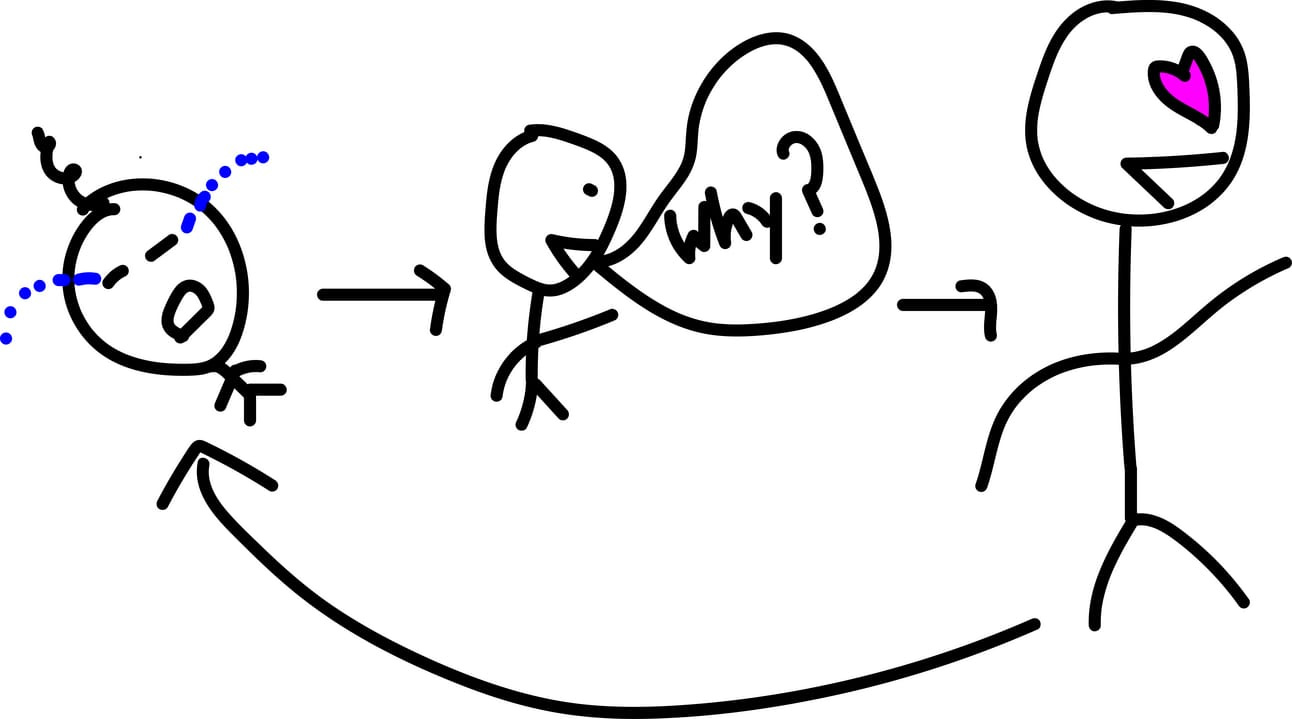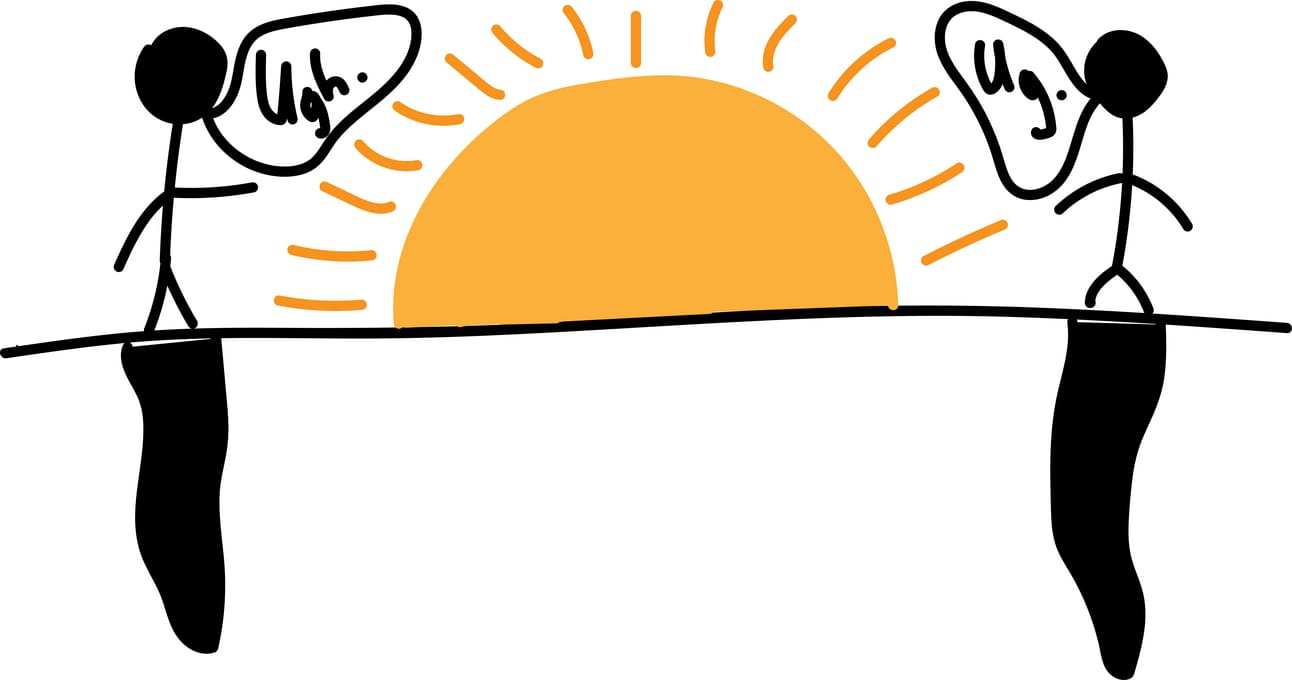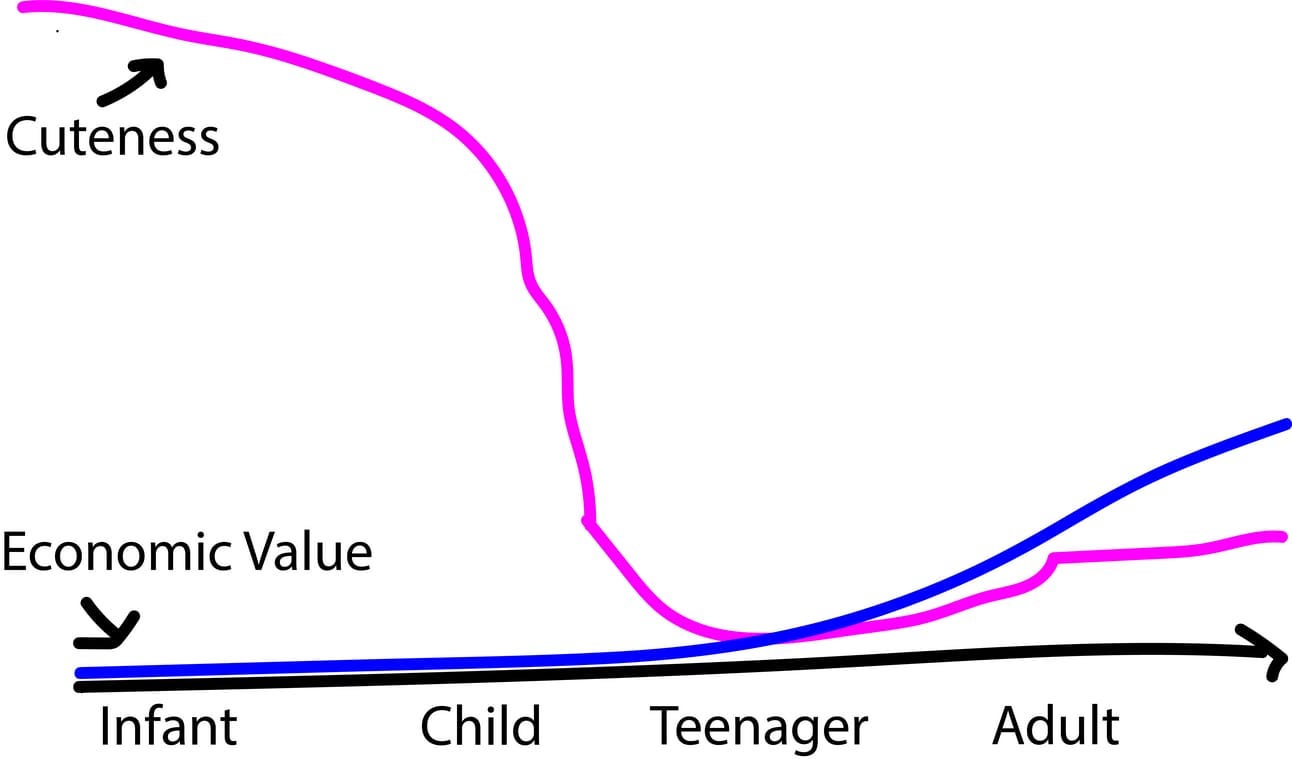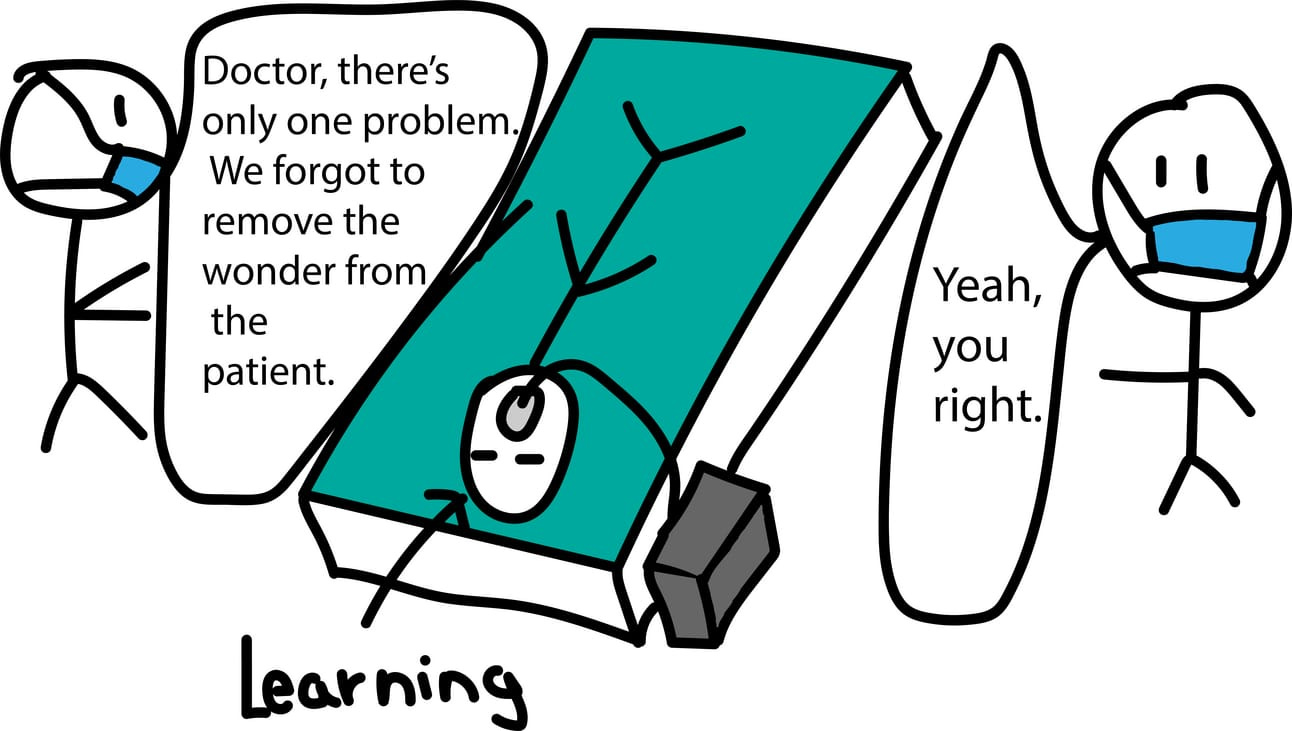Hello friends, welcome! If you want to explore how we see the world & better understand it, subscribe below:
You can check out my other articles or follow me on Twitter too!
"I’m not a maths person.”
If I had a nickel for every time I heard this growing up, I’d be a millionaire.
Many of my classmates held a common belief: to be extraordinary at something, you had to be naturally gifted at it. A certain type of person existed; a maths person, a athletic person, or a musically talented person.
Fortunately, at an early age, my father pushed that understanding mathematics was no different from other topics; it required rigorous focus and a strong work ethic. He encouraged me to learn the multiplication tables (he may have bribed me with Yu-Gi-Oh cards) and lo & behold, while others struggled in early multiplication exercises, I managed to skim thru with ease.

If you know what Yu-Gi-Oh starter packs are, you’re a real one.
Even today, when you point out that mathematical ability (similar to learning a language or playing an instrument), is largely the outcome of diligent work, others point to talented people and insist that based on a track record of accomplishments (in some cases, ranging back to their childhood) that they were blessed with inherent abilities & “destined” for greatness.
They do have a point!
These early childhood events are indicative of increased probability of an future accomplishments.
If Mark Zuckerberg had not begun programming at the age of 9, it would be unlikely that he would have had the technical know-how to be able to build Facebook at the age of 19 in university and subsequently, he never would have become the world’s youngest self-made billionaire.
Or if Patrick Collison hadn’t won the Young Scientist Exhibition at age 16 by inventing Croma (a new LISP-based computer language) in Ireland, he likely wouldn’t have attracted his first investor for his first company (Automatic) which later helped lay the foundation for founding Stripe.
“It helped me hugely — there’s no doubt about it…. It was the Young Scientist competition, and not something business-related, that most impressed Automatic’s first investor.“
Million dollar boy who changed the face of the web
While starting at an early age or having a inherent inclination is certainly an advantage, (even more so if you are aiming to become a billionaire by 20 or 30), ultimately at some point, the person did the thing.
They learned the proof, programmed in the language, studied the theory, practiced the instrument or dribbled the ball. It was the continual doing that resulted in the majority of their abilities, not solely or even majorly, their inherent talent.
Their accomplishments are reflective of their hard work.
All learning is, well, learned.
It sounds so ridiculous to say, but we do not arrive into this world, pre-booted with the understanding of how to find the curvature of a plane in flight, supply-and-demand, the conversion of matter into energy, the ability to tickle the ivories of a piano or to shoot a 3 pointer; we are booted up with minimum biological operating software.
As a baby, we cry if hurt or hungry, poop & pee when necessary and sleep 16 hours a day. In childhood, we develop an basic understanding of the world; what’s edible or what isn’t, what’s dangerous or not, who’s in our tribe and who isn’t. As we mature in adulthood, we seek social connection & some sort of social standing, and eventually, sex to repeat the cycle again.

The tiers of structured learning and of self actualization, are a relatively new phenomenon in the 100,000 years of human civilization.
Throughout most of history, you wouldn’t be in a classroom studying the equations of Newton or cheering the Lakers as they score another 3 points or talking about the economy.
You’d be watching the sun go down in your jungle as you & your buddies find a patch on the ground to sleep.

Comparatively, a modern 3rd grader would easily outperform you in the basics of mathematics, literature, reasoning, etc.
Since we are effectively biologically the same to our ancestors, what’s changed is the way we a) pass on & understand information (aka teach & learn) and b) utilize that information.
Therefore, given that knowledge compounds, it actually makes sense that people learning something from a younger age, with a slight inclination toward a subject where their interest is encouraged, would have a higher chance of overcoming greater challenges in the same space than someone just starting out.
If I lifted a heavy weight and said, “This is heavy; I’m not a weights person,” people would point out I’m just too weak to pick it up. I’d need to start with a weight that I can lift, then pick up heavier and heavier weights, build my muscles, eat enough protein and then I could do so.

Struggling with a mathematics problem or a wordy sentence in a book is no different; it’s exercise for the mind & necessary to build up the mental muscles.
Naval R. put it best:
“If I am reading a book and I’m getting confused, it is just like working out and the muscle getting sore or tired, except now my brain is being overwhelmed.”
The Almanack of Naval Ravikant - Naval Ravikant
But the issue with being a “maths person” or not has less to do with the individual person and more so with how we relate to learning.
Our modern relationship with learning
Unfortunately, the modern world has segmented the development of it’s adults into quite the industrial process:
a period in which you are born (and are of no economic value to society aside from intense cuteness),
a period in which you learn (in preparation of the generation of economic value & are declining in cuteness) and
a period in which you work.
a period of rest (retirement).

The world operates to get you to a place of generating value and a byproduct of this industrial manner to learning is that learning is simply a means to an end.
You go to preschool to go to kindergarten. Then kindergarten for elementary, elementary for middle school, middle school for high school, high school for college and college to get a job. Any on the job learning can then be used to form a application for upper graduation. New learnings along the way? Useful for starting a business!
“Young people go to college to get a good job. Poll after poll establishes the fact that economic opportunities are the most important motivation for higher education.”
Americans are falling out of love with the idea of college - Noah Smith from Noahpinon
Now working to generate better economic outcomes for yourself isn’t bad at all however, the industrial nature of learning encourages the atomization of learning (grade levels & by subject) and clear, established processes (tests, textbooks, classroom lectures) to learn.
Subsequently, teaching has become a form of merely passing on information.
“If teaching is reduced to mere data transmission, if there is no sharing of excitement and wonder, if teachers themselves are passive recipients of information and not creators of new ideas, what hope is there for their students?”
A Mathematician’s Lament - Paul Lockhart
When all manner of wonder & exploration are removed from learning, when autonomy & personality are suppressed, is it any surprise then that students associate learning with inherent qualities (I am/am not a maths person)?

But there is an alternative; one that I’ve found that restores what has been forgotten in our modern relationship to learning.
Learning as a means to itself.
What’s the point of breathing?
It is an ever present, continuous process that will only halt when you are dead. There’s no goal to get to, no accolade to collect. Simply just the action itself and an appreciation for it.
Learning is just the same.
When there’s no test to pass, no degree to earn, no job to get to, then you’ve got to explore the why of it. And it’s here in this why that you discover the wonder of learning.
“The genuine love for reading itself, when cultivated, is a superpower. We live in the age of Alexandria, when every book and every piece of knowledge ever written down is a fingertip away. The means of learning are abundant - it’s the desire to learn that is scarce.”
The Almanack of Naval Ravikant - Naval Ravikant
When we recognize ourselves as being malleable and learning as a lifelong journey, we no longer need to concern ourselves with being a certain type of person or not.
Ultimately, you learn everything no different from the geniuses; you learn.
You may not win the Nobel Prize for Physics like Einstein, or the Turing Award for Computer Science like Dijkstra or play in Carnegie Hall like Hilary Hahn. You may not swim the Olympic 200m butterfly the way Micheal Phelps does or hoop like Michael Jordan.
But you can appreciate the transcendent nature of the theory of general relativity, improve your jump shot, and jam with your friends.
Your life will surely be better for it.
-Kiran
If you liked this piece, make sure to subscribe by adding your email below!
Kiran’s Gems 💎
“If adding fractions is to the teacher an arbitrary set of rules and not the outcome of a creative process and the result of aesthetic choices and desires, then of course it will feel that way to the poor students.” - A Mathematician’s Lament by Paul Lockhart
“We are defined by the places we hold in the web of others’ lives.” Ken Liu’s mono no aware is among one of my favorite pieces of sci-fi writing and has helped me develop a greater appreciation for various genres.
The U.S. Department of War’s 1947 short film Don’t Be A Sucker is as relevant today as it was 76 years ago; it’s striking to see how division & strife emerge across eras.



